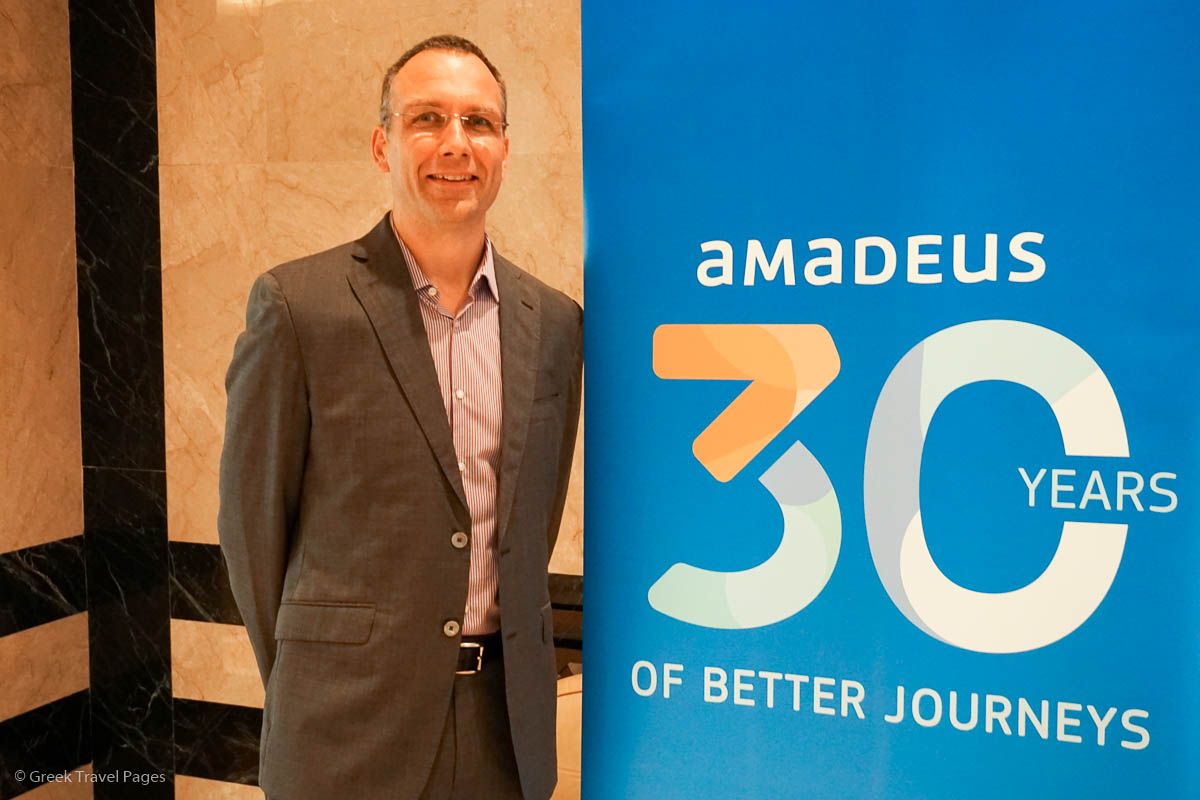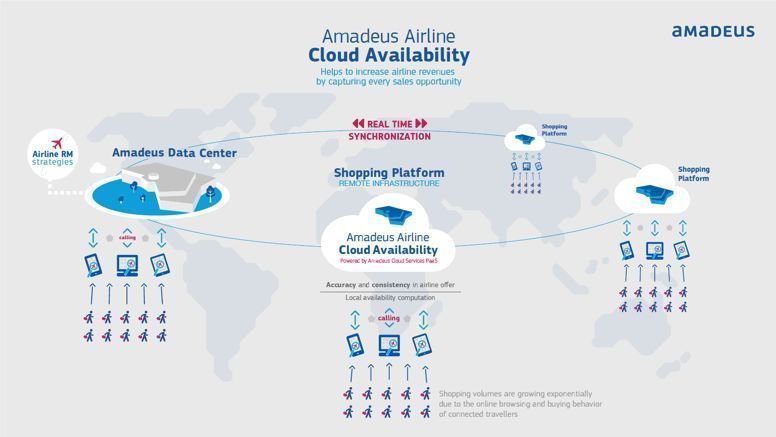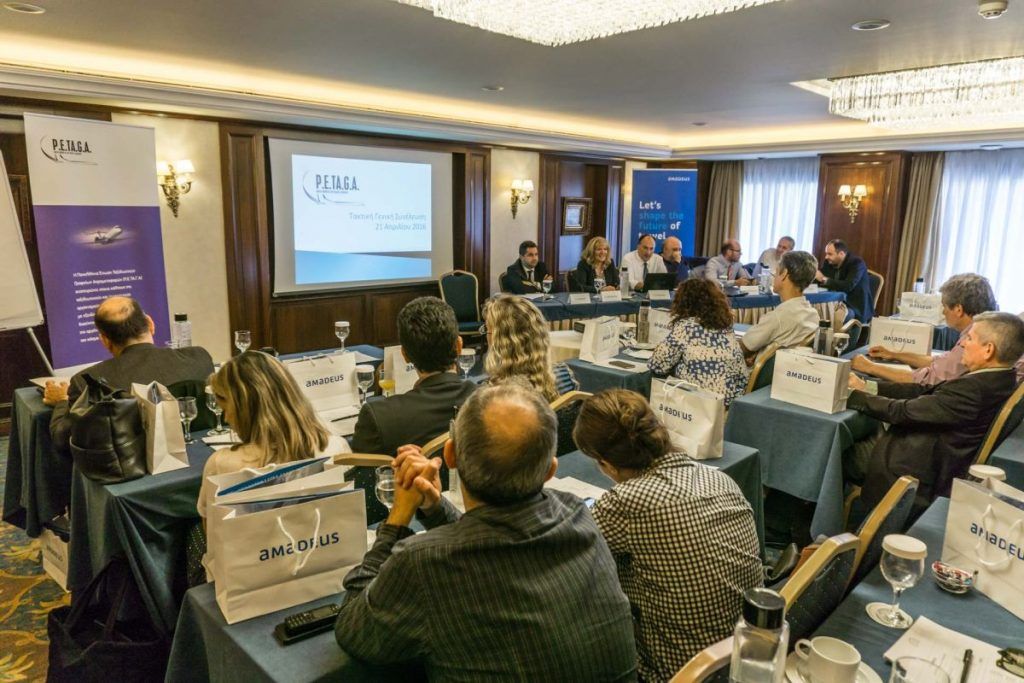Interview – Amadeus VP for NECSE Region Gives Outlook for 2017, Talks Key Trends and Greek Market
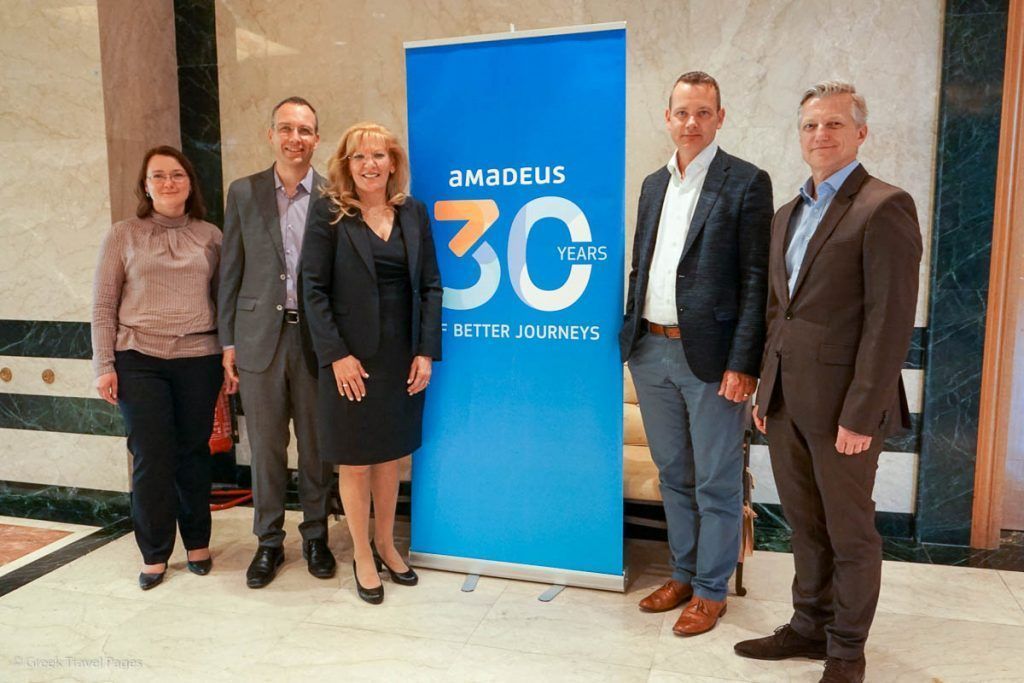
Joost Schuring, Vice President Northern, Eastern, Central & Southern Europe, Amadeus IT Group (second from left), during his recent visit to Athens. He is pictured with (from left) Olga Sukhovskaya, Head of commercial and marketing Central, Eastern & Southern Europe, Amadeus IT Group; Eva Karamanou, General Manager Amadeus Hellas & Deputy Regional Manager Southern Europe, Amadeus IT Group; Lutz Vorneweg, Director Central, Eastern & Southern Europe, Amadeus IT Group; and Bernhard Brauneder, General Manager Austria & Regional Manager of Southern Europe, Amadeus IT Group.
Amadeus, an innovator in the global travel and tourism industry, is celebrating its 30th year of business this year. “Along the way, there have been many important milestones that have made us who we are today,” says Amadeus IT Group’s VP Northern, Eastern, Central & Southern Europe (NECSE), Joost Schuring.
From a Global Distribution System (GDS) with the mission to connect providers’ content with travel agencies and consumers in real time, Amadeus has developed into a leading provider of IT solutions, innovation and technology to the global travel and tourism industry.
Appointed to his position in January this year, Schuring leads Amadeus’ Distribution business in the region, including strategy, sales, marketing, partnerships, solution management, and customer support for Amadeus’ travel agency and supplier customers in NECSE. Prior to his appointment Joost was VP Latin America & Caribbean from October 2013.
The Greek Travel Pages (GTP) caught up with Schuring during his recent visit to the offices of Amadeus’ Greek branch (Amadeus Hellas) and discussed the company’s milestones and outlook for 2017, as well as a number of key trends taking center stage in the travel world this year that include the definition change of LCCs, the rise of popularity of sharing economy services for business travelers and the further development of mobile in the travel sector.
Schuring also informs on future plans regarding the Greek market, a market that has shown positive tourism results in the last 3 years.
“Our plans are to continue innovating in the Greek travel market with solutions that enable travel professionals to benefit from merchandising, ancillary services, and enriched content – ultimately to shape the future of travel.”
- GTP: What makes Amadeus a great travel distribution partner?
Joost Schuring: Our global distribution system gives airlines and travel providers 24/7 free display all over the world and the ability to book flights in real-time at an estimated average cost of 2% of sales. There is barely a more efficient distribution mechanism in any other industry. Proof of its value is that it channels an estimated 50% of all global air bookings (including LCCs). It also represents an even higher yield per passenger (we estimate approximately 40% higher on average) because many indirect bookings represent corporate travel, complex itineraries and long-haul travel.
We observed a 95% growth in ancillary sales through indirect channels last year. For airlines, this can make a big difference; we estimate that on average, the sale of an ancillary service will represent a revenue uplift of between 10 and 15%. The average ticket price can increase by 20% when a Fare Families service is sold. In other words, airlines today are increasing their revenues, they are achieving this growth with the GDS as a partner, and we are investing to ensure that this trend continues well into the future.
Today, 127 Airlines have signed to sell their Ancillary Services through Amadeus and 95 are already implemented.
- GTP: How do you find the online presence of Greek businesses in comparison with other European countries? Do you find that Greek travel agents are investing more in the online market these days then, let’s say, five years ago?
Joost Schuring: The online presence of Greek travel businesses has certainly been growing over the last years, with a focus on two separate areas. First, the evident economic crisis in Greece forced several online travel agencies to shift their focus on expanding their presence to international markets. This allowed them to rapidly grow their customer base and become among the leading players in the NECSE region.
In the opposite spectrum, we have witnessed an uplift of investment towards inbound tourism fuelled by the positive results of the Greek tourism industry in the last 3 years. Initiatives such as DiscoverGreece are encouraging and showing the path that the industry should follow in order to remain relevant and competitive for travellers around the world.
As the traditional tour operator model is evolving, we expect travel agents and other industry members in Greece to seize these opportunities and explore new business models such as mobile retailing and digital tour operating. Participating in these newly created travel marketplaces and engaging with emerging players like Mega Online Travel Retailers as identified in our Online Travel 2020 Report will be essential for the continued success of Greek tourism.
- GTP: This year Amadeus is celebrating its 30th year of business. What milestones have been achieved?
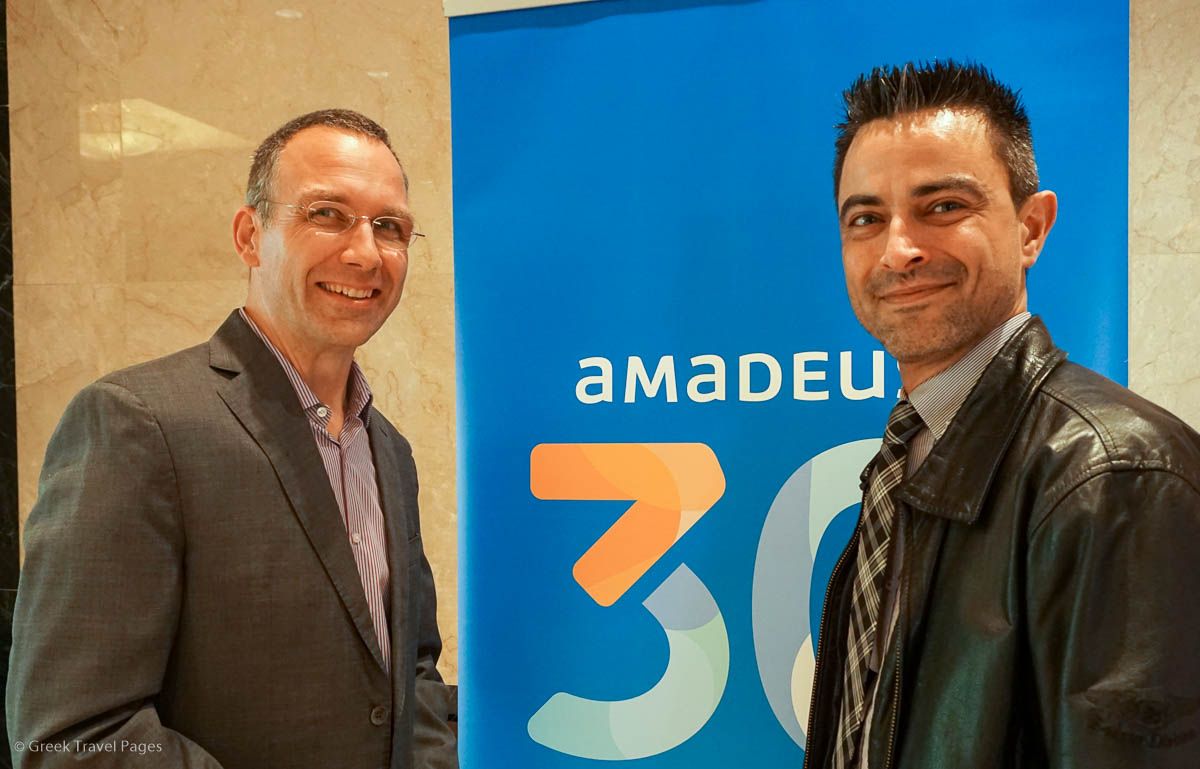
Amadeus IT Group’s VP Northern, Eastern, Central & Southern Europe (NECSE), Joost Schuring and GTP’s Managing Editor, Nikos Krinis.
Joost Schuring: Amadeus has been a leading innovator in the global travel and tourism industry for nearly 30 years. Along the way, there have been many important milestones that have made us who we are today.
Amadeus began life as a GDS with the mission to connect providers’ content with travel agencies and consumers in real time.
Over time, we diversified our operations by also focusing on IT to deliver services spanning beyond sales and reservation functionalities.
To select just a few milestones of many over the years:
- In 1992, we created the first Amadeus PNR (Passenger Name Record)
- In 1998, Amadeus became the world’s largest GDS, processing 1 million bookings in a single day for the first time
- In 2010, Amadeus listed on Spanish stock exchange and we launch Amadeus Hotel platform
- In 2015 we were ranked #10 software company in the world according to Forbes 2015 Global 2000 ranking
- These past few years have been marked by strategic acquisitions across different areas of travel; from Newmarket International to AirIT, Itesso BV, Hotel Systems Pro and Navitaire
- Investment in research and development has also been integral to our growth. Since 2004, the company has invested over 4bn euro in R&D
Our inclusion on the Dow Jones Sustainability Index for the past five consecutive years reflects our commitment to sustainability, both in our business practices and our respect for the environment.
- GTP: What is Amadeus’ outlook for 2017? Should we expect any innovations that will help transform the travel product?
Joost Schuring: Innovation has been a key factor in our success – from the evolution of our core platform to innovative solutions for the changing needs of all travel industry players. R&D is a strategic priority for Amadeus and we consider innovation to be key factor in achieving market leadership.
We’re constantly improving the traveller experience through investment in our systems and solutions. An example of this is our commitment to cloud computing and open source technology. We have built a solution to ever increasing flight search volumes with Amadeus Airline Cloud Availability. Mid-2016, Red Hat awarded Amadeus for our outstanding use of cloud technology. Last year we announced Instant Search technology that unlocks the ability to search billions of travel options across multiple criteria – in just a matter of milliseconds – and book the most suitable flight.
Initiatives such as Amadeus Ventures and Amadeus NEXT in Asia Pacific have proven to be very successful in nurturing innovation – with the aim to improve the travel experience by working with exceptional teams who have brilliant minds and excellent business ideas.
We are constantly keeping an eye on the trends that are shaping the travel experience of tomorrow. We see a number of key trends taking centre stage in 2017, amongst them:
- The rise of retail: The travel industry will begin to model itself on the retail industry, relying more and more on cross-selling and upselling. Travel agents will plug in negotiated content and third-party deals rather than relying solely on GDS content.
- Hyper-personalisation: We’ve only begun to scratch the surface of personalisation. Demographics are becoming less and less relevant, as travellers want options that are contextual, based on their ever-changing needs: the next stage of personalization is giving the traveller what he wants at a given time.
- Changing the definition of LCC: In the past travellers have viewed LCCs as the no-frills way to travel between two cities. While travellers will still want to take advantage of the lower cost of an LCC, they will be looking for a full-service experience including mobile alerts and a higher level of duty of care.
- Virtual and augmented reality: The travel industry is all about selling an experience, and VR and AR will become important selling tools. Travellers will be able to go inside an aircraft cabin and choose their seat, or walk around a hotel room or downtown neighbourhood, encouraging them to make a decision and book.
- Sharing economy: As travellers continue to blur the lines between travelling for business and leisure, major players in the consumer industry are becoming more popular for business travellers. Airbnb and Uber both have dedicated business travel sections, and have shown enormous growth since their launch. Sharing economy services – and the data they collect – will continue to be embraced by companies looking to provide a high level duty of care and better understand the needs of individual business travellers.
- Mobile: Mobile will continue to play a key role in the travel sector and will allow travellers to have more control over their experience. Mobile payments and location-based services will be a priority among airlines, airports, and hotels, as will mobile-based travel assistance. Providers who invest in mobile will have an advantage over traditional suppliers.
- Robotics: A recent study showed 80% of travellers expect to encounter robots frequently by 2020, and almost two-thirds are comfortable being served by robots. As travel providers begin to invest in robotics, people will become even more comfortable with relying on robots to help manage luggage and provide concierge services at hotels, direct guests on cruise lines, and offer information at airports. Robots will also be used for guest services such as bartending.
- GTP: What does Amadeus’ future plans include for the Greek market?
Joost Schuring: Amadeus has been supporting the Greek travel industry and consequently Greek tourism by empowering travel professionals with innovative solutions, excellent customer service and consultancy and has been building long lasting partnerships that provide travel professionals with the tools, confidence and knowledge to grow their business and evolve.
On top of that, Amadeus Greece has been actively supporting the Greek Union of Air Travel Agencies (P.E.TAG.A) for the second year now and our Greek team is willing to contribute to this successful partnership with solutions and expertise.
 We have been systematically investing in bringing forward our global trends and travel insights worldwide, partnering with well-known universities and consultancy firms. The Greek market has been very responsive towards our reports & white papers – one recent example being the Luxury Travel paper as part of our Future Traveller Tribes 2030 series, having been picked up particularly well in the market. These papers serve well to highlight how travellers are evolving and serve as a roadmap to how Greek tourism should evolve to grow.
We have been systematically investing in bringing forward our global trends and travel insights worldwide, partnering with well-known universities and consultancy firms. The Greek market has been very responsive towards our reports & white papers – one recent example being the Luxury Travel paper as part of our Future Traveller Tribes 2030 series, having been picked up particularly well in the market. These papers serve well to highlight how travellers are evolving and serve as a roadmap to how Greek tourism should evolve to grow.
Last year, Amadeus received a Digital Distinction at the Digi Travel conference in Athens for systematically investing & contributing to the global think tank with research reports that focus on technology & future travel trends. This acknowledgement proves the great value of such research initiatives – and we look forward to continue in this line in the future.
Our plans are to continue innovating in the Greek travel market with solutions that enable travel professionals to benefit from merchandising, ancillary services, and enriched content – ultimately to shape the future of travel.
- GTP: In the recent report “Travel distribution: the end of the world as we know it?”, Amadeus notes disruptions over the next 10 years that will significantly impact industry players and their business models. What disruptions are expected to impact Greek market players?
Joost Schuring: Here are key findings from this report that we believe have a global impact:
 Consumer expectations will rapidly spill over from retail into travel distribution. Players in the travel distribution industry will need to respond with broad collaborations for aggregating, processing and harnessing the big data involved. Otherwise, the explosion of complexity and differentiation of services in the short term could translate into potential confusion for the consumer.
Consumer expectations will rapidly spill over from retail into travel distribution. Players in the travel distribution industry will need to respond with broad collaborations for aggregating, processing and harnessing the big data involved. Otherwise, the explosion of complexity and differentiation of services in the short term could translate into potential confusion for the consumer.- The role of gatekeepers, the giant IT companies with major consumer interfaces, in travel distribution will continue to grow, notably through the use of virtual assistants, payment technologies and integration into social media.
- The size and power of ‘mega-meta-OTA’ hybrids (online travel agents with metasearch capabilities and global brands) are likely to continue growing. Consequently, their influence will penetrate deeper into the distribution chain, with the ability to negotiate better content and conditions, whilst still receiving commissions.
- The travel distribution industry is rapidly becoming a technology industry. Business models will need a more strategic approach that recognises the value creation of different technologies across the industry.
- To avoid consumer confusion and lost opportunities, industry distribution need to go beyond bilateral partnerships and contractual relationships. Distribution business models will need to evolve to encompass more shared innovation, a culture of experimentation and cross-industry alliances.
Sharing economy platforms will continue to create new markets and erode the market share of suppliers and industry players who intermediate. The industry will need to adapt to this changing market and carefully monitor the impact of competition rulings in different regions as regulators play catch-up.
- GTP: What will Amadeus be exploring in its next travel report? Could we have a “sneak preview”?
Joost Schuring: Amadeus is constantly looking at how travel is evolving across the whole industry. Our next report which is planned for launch later this year will take a look at accessible travel (or in other words, accessibility within travel) and the specific needs of this traveller segment.
- GTP: Amadeus recently announced new partnerships (with Distribusion and Betterez) that aim to make the bus a promising travel alternative. Is this effective in the Greek market?
 Joost Schuring: Distribusion’s aggregated bus content, which spans 300+ bus & shuttle operators, 2500+ destinations, 250+ connected airports, will be available to Amadeus travel sellers in the CESE region (Central, Eastern and Southern Europe) — including Greece — in the second half of this year.
Joost Schuring: Distribusion’s aggregated bus content, which spans 300+ bus & shuttle operators, 2500+ destinations, 250+ connected airports, will be available to Amadeus travel sellers in the CESE region (Central, Eastern and Southern Europe) — including Greece — in the second half of this year.
Betterez’ cloud based Reservations & Ticketing Management (RTM) platform is currently available to bus operators anywhere in the world. Betterez can perform language, tax and other localizations for global markets.
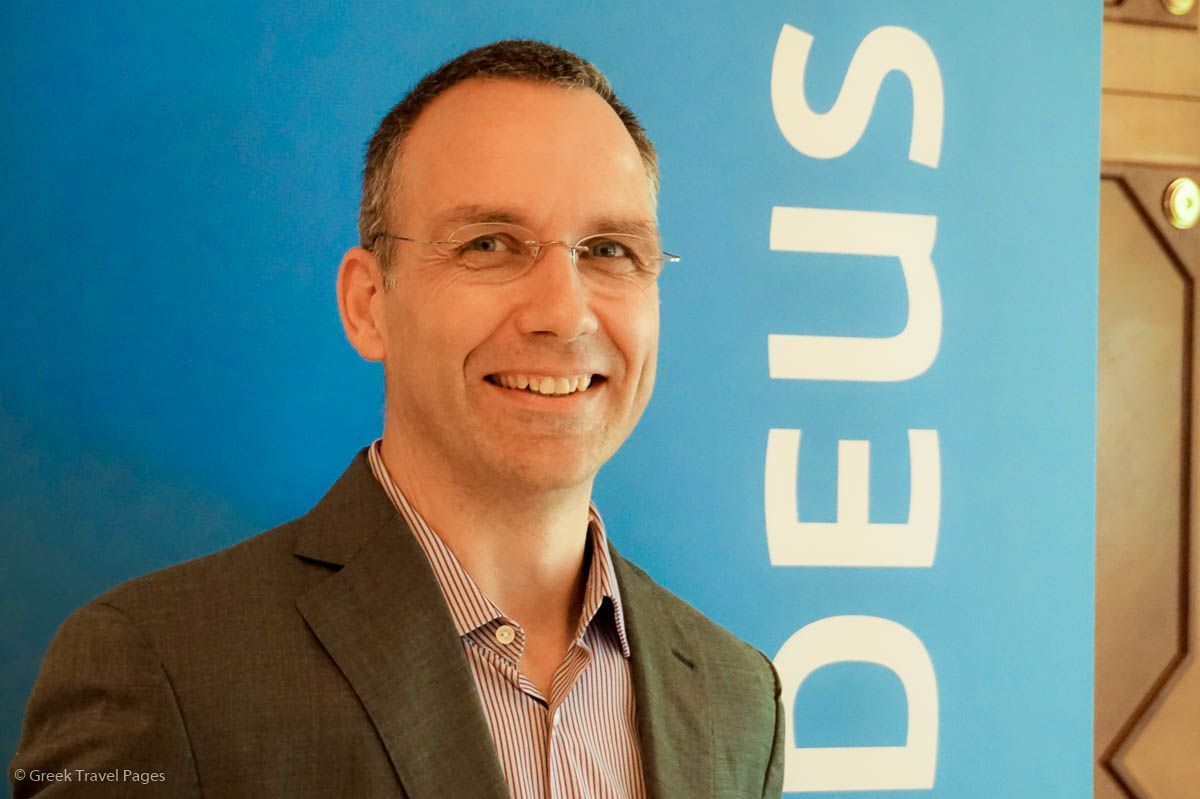 Schuring joined Amadeus in 2001, and held various commercial and leadership positions in the areas of e-commerce and account management of both travel agencies and airlines, before being appointed Director of Airline Distribution Sales. Prior to joining Amadeus, he held positions in Procter & Gamble in Holland and Spain. Joost is a Dutch citizen, he has an MA in Business Economics from the University of Amsterdam. He has lived in Spain, the United States, and Brazil and now resides in Germany.
Schuring joined Amadeus in 2001, and held various commercial and leadership positions in the areas of e-commerce and account management of both travel agencies and airlines, before being appointed Director of Airline Distribution Sales. Prior to joining Amadeus, he held positions in Procter & Gamble in Holland and Spain. Joost is a Dutch citizen, he has an MA in Business Economics from the University of Amsterdam. He has lived in Spain, the United States, and Brazil and now resides in Germany.

